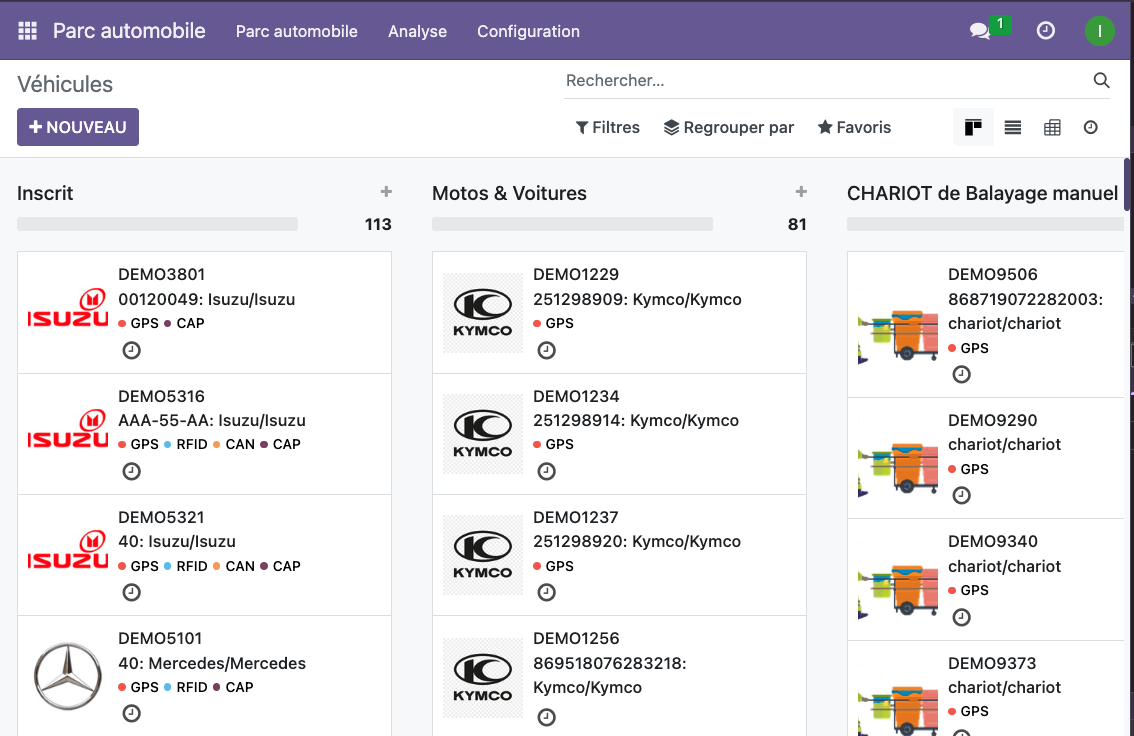Geodaki
Developed by Insight Solutions, Geodaki is an intelligent platform based on artificial intelligence, designed to improve urban waste management. Deployed in over 12 cities and benefiting more than 7 million people every day, it relies on a powerful infrastructure capable of processing massive volumes of data.
The Geodaki platform is developed on Odoo ERP, which allows it to offer a flexible and modular solution. It includes ready-to-use modules such as Sales, Accounting, Inventory, Project Management, and Human Resources, thus facilitating the comprehensive management of operations within the platform. These modules enable consistent and optimized management of the various aspects of the organization, whether it involves sales management, finance, logistics, or human resources.
Geodaki integrates perfectly with proprietary equipment as well as third-party devices, enabling smarter tracking, optimized planning, and better decision-making. By harnessing the potential of AI, the platform enhances operational efficiency, reduces costs, and contributes to the development of more sustainable cities.

5000+
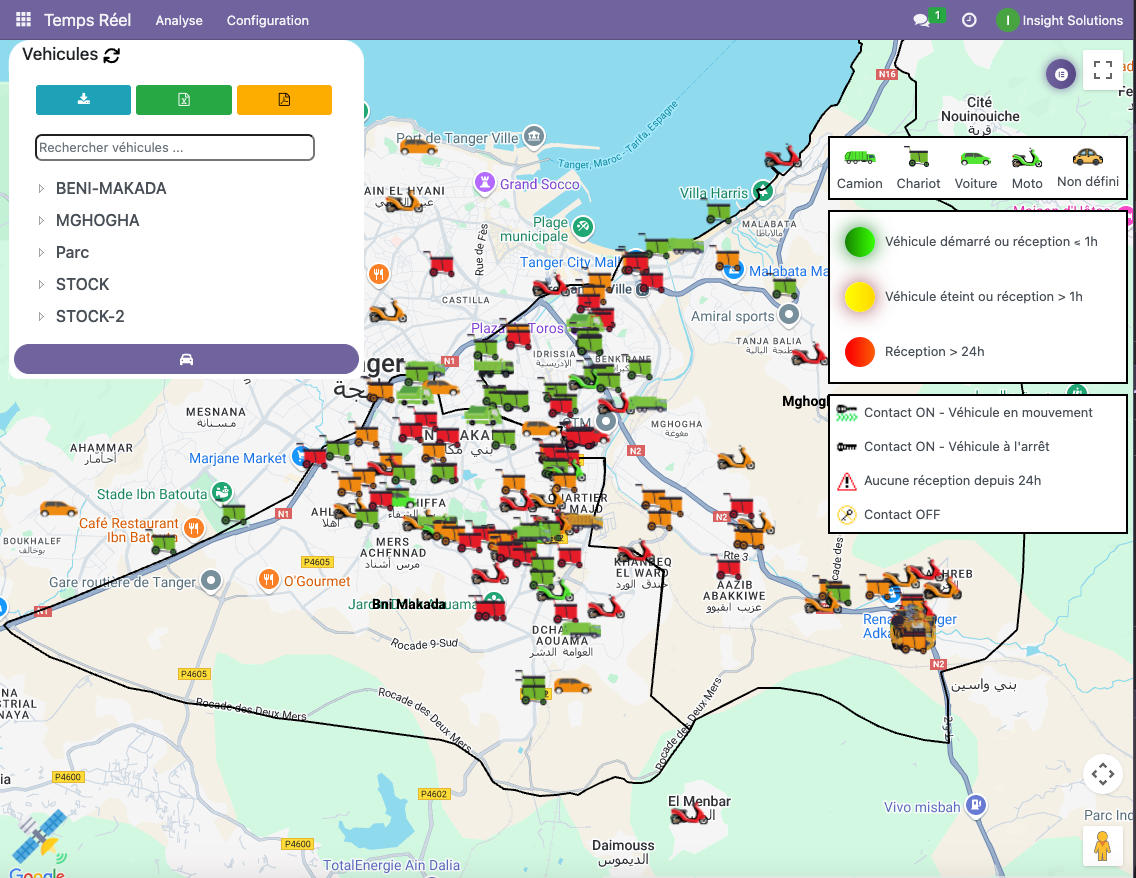
real-time :
This module offers several advanced features to users. Among these, it allows real-time tracking of vehicles, with precise visualization of their movements every 5 seconds. It also provides the ability to check the reading status of RFID tags by vehicles equipped with RFID readers, as well as the activation status of sensors installed on each vehicle. The user can track operations through three analysis options: by vehicle, by route, or by driver, thus offering great flexibility and accuracy in monitoring waste collection activities.
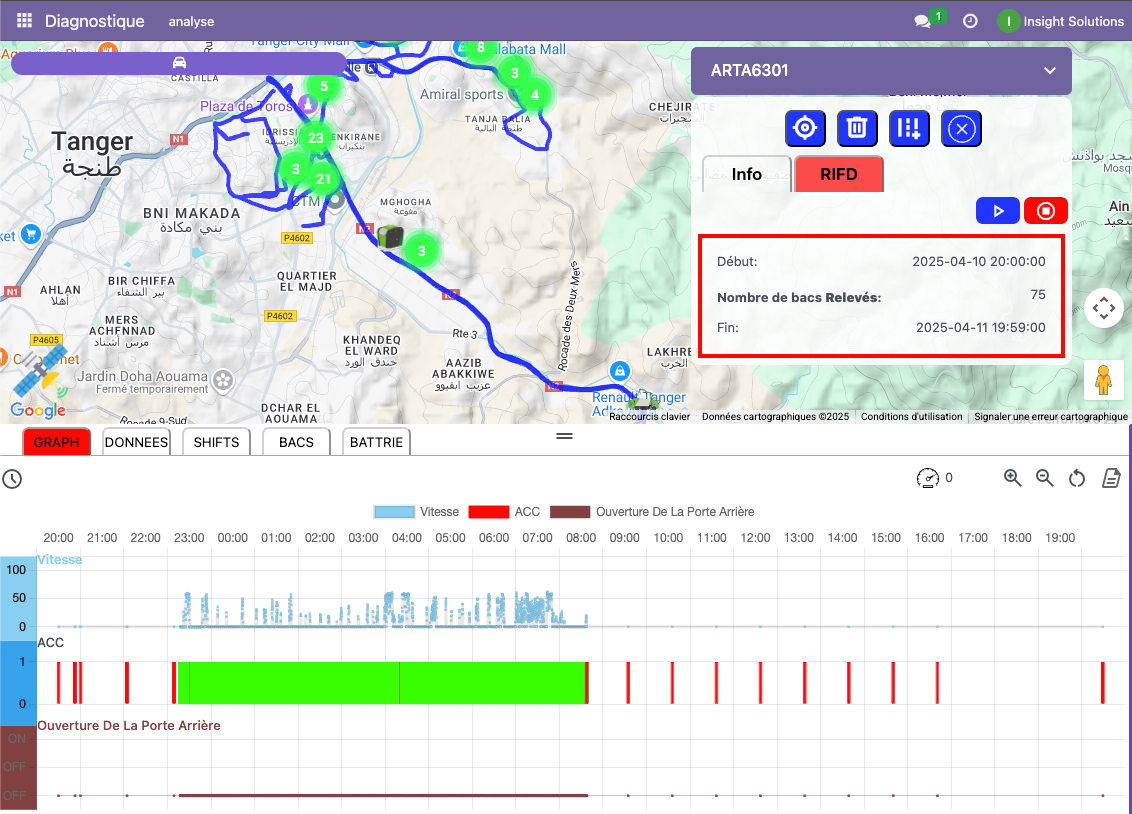
Diagnosis :
The operational diagnostic module complements real-time monitoring by analyzing performance, detecting inefficiencies, and optimizing workflows. It tracks vehicle movements and sensor data to improve efficiency and predict maintenance needs. The main role of this module is to provide a more detailed analysis of the activities of each vehicle individually (vehicle by vehicle). It allows for the consultation of specific information such as the number of bins collected and washed, the number of hours worked for each work period, as well as the visualization of graphs showing speed and working time. Additionally, it enables the analysis of diesel consumption and data from other installed sensors. The module also offers the ability to compare the actual performance of the vehicle with the planned theoretical route for the selected vehicle.
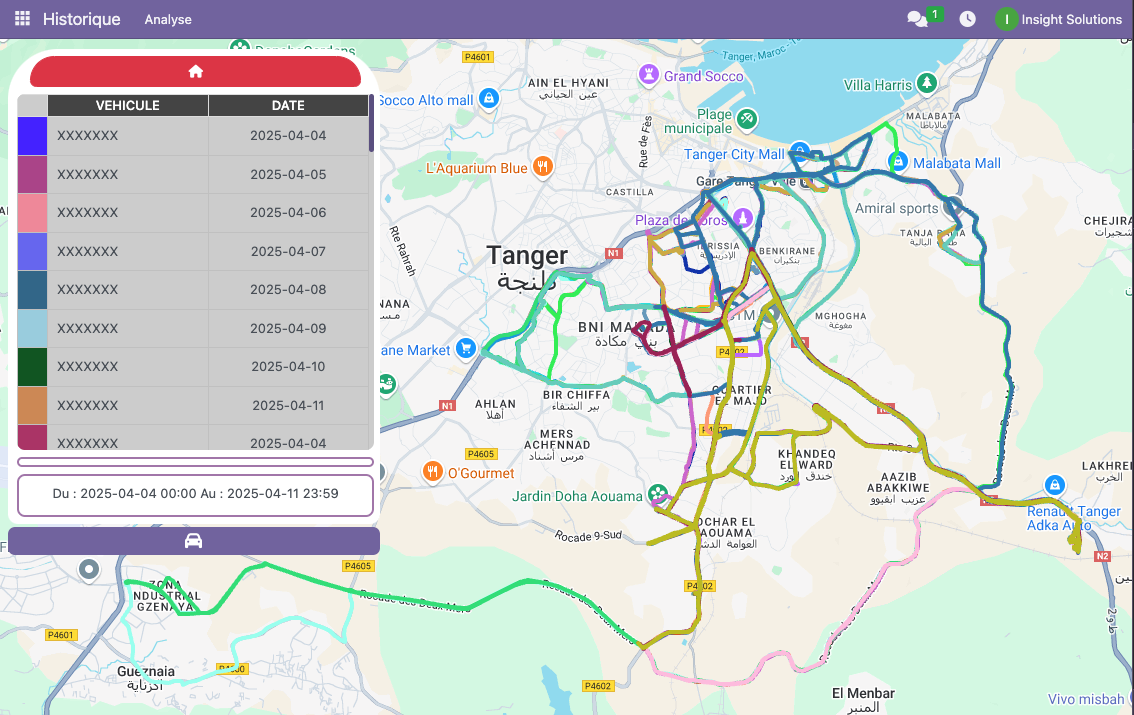
History:
The Activity History module provides interactive access to historical data of vehicles and routes, allowing managers to analyze performance and identify areas for operational improvement. It also ensures access to the data history, with analysis conducted over a period of 8 days at a time. Users can select one or more vehicles, or even the entire fleet. For each selected vehicle, detailed information is provided for each chosen day.
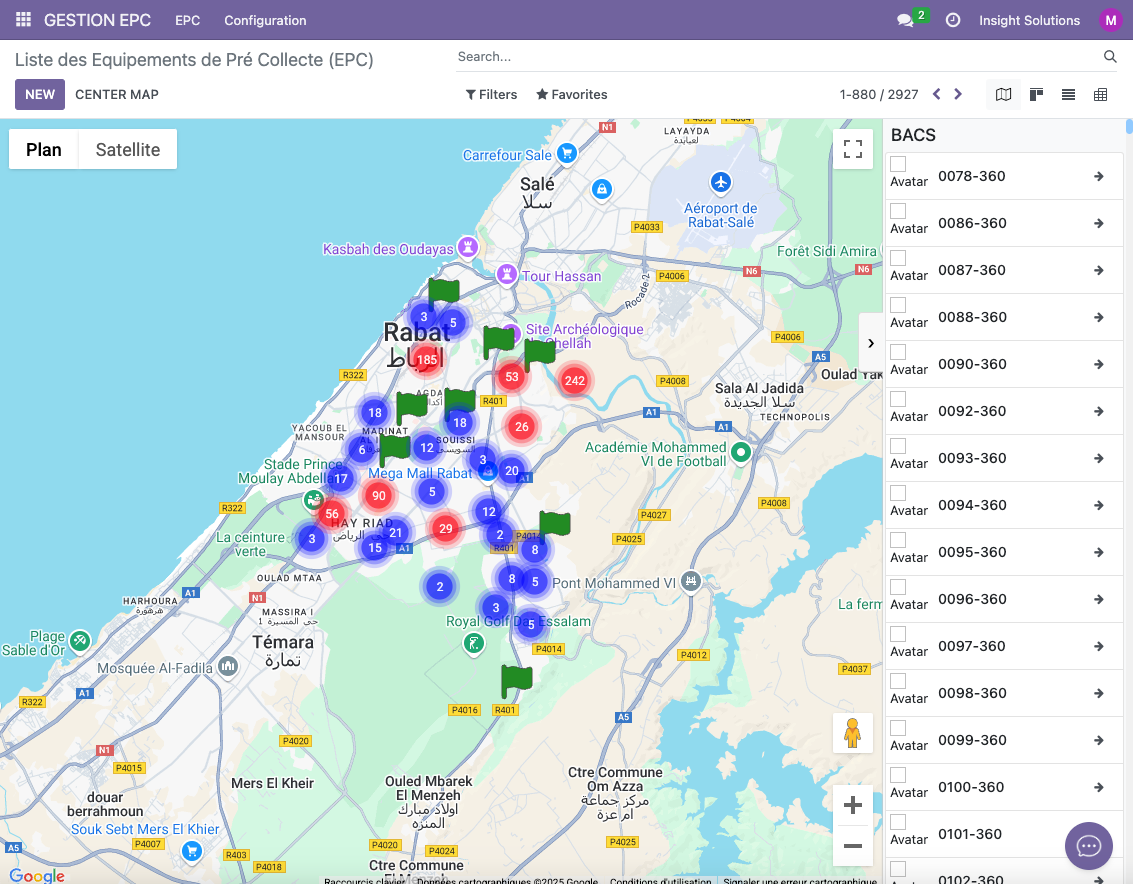
EPC Management:
The EPC management module (Pre-Collection Equipment) allows users to visualize, manage, and monitor pre-collection equipment—such as bins, columns, and containers—in real-time via an interactive map. Designed for operators and supervisors, it provides effective oversight of equipment deployed in the field. With an intuitive interface, it enables the addition and modification of EPCs, while integrating a search bar, advanced filters, and grouping options to facilitate the daily management and operation of the equipment.
RFID:
The RFID module allows real-time tracking of the collection status of waste containers at the city level. The RFID chips, compliant with the EN 14803 standard and designed for standard EN 840 containers, are equipped with anti-collision capabilities. On the supervision interface, uncollected bins appear in red, while collected ones are displayed in green. This module also enables users to track the statuses of pre-collection equipment (EPC), whether for collection or washing operations. The user can view the collection or washing status of a specific vehicle by selecting it from the vehicle tree located in the left sidebar. It is also possible to display the collection or washing statuses of all EPCs, or to filter the display based on one or more categories of equipment.
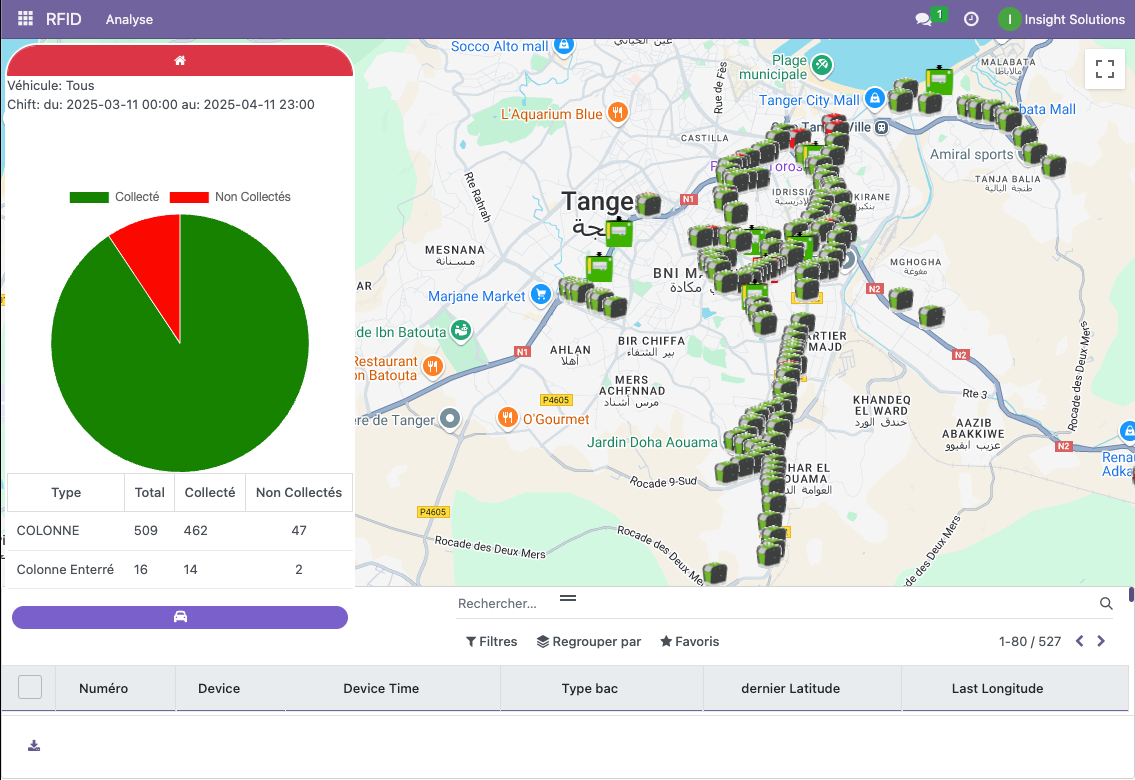
Fill rate:
The fill rate module allows for tracking, analyzing, and managing the fill level of bins or containers using connected sensors. It provides a centralized view to assess the efficiency of collection, identify anomalies, and optimize routes using real-time data. This module also enables the management of level sensors, including their configuration and assignment to pre-collection equipment (EPC). Data analysis can be conducted using two approaches: by BAV, searching for specific EPCs to analyze, or by area, displaying the results of the BAV corresponding to a given geographic area.
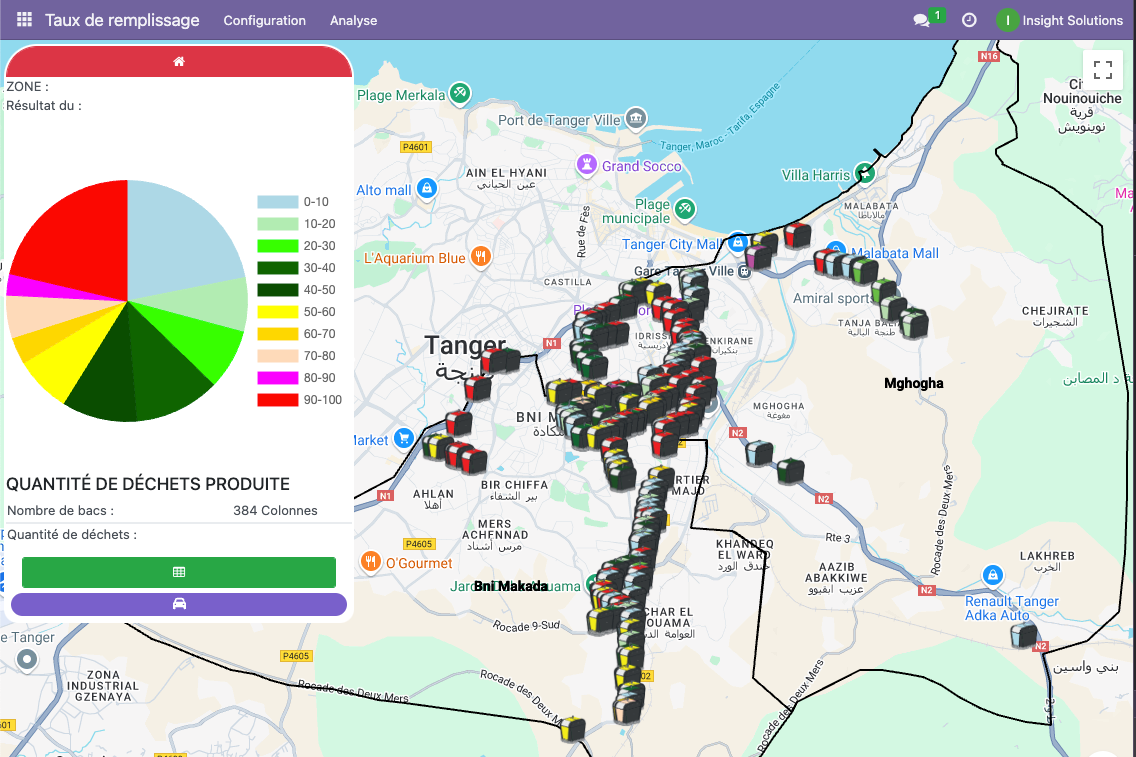
Planning:
The planning module facilitates the organization of routes and the allocation of resources by allowing managers to assign and track tasks through a user-friendly interface. Once the routes are created, they can be scheduled for execution based on the availability of vehicles and drivers, thereby ensuring timely and efficient operations.
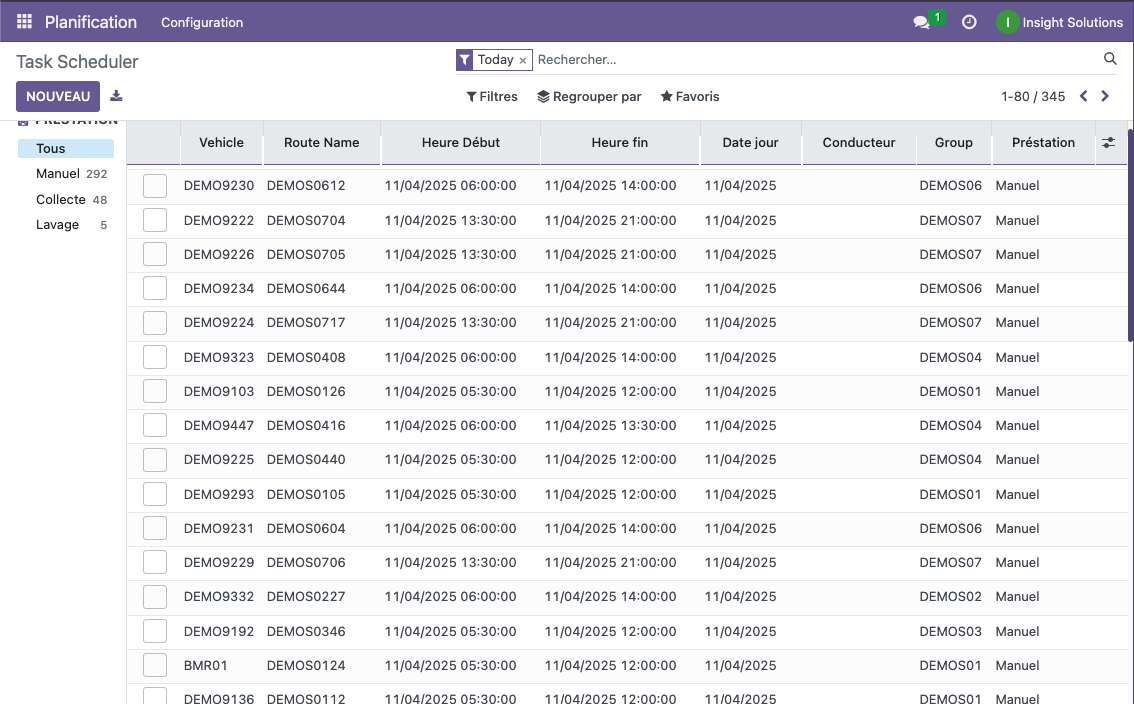
thematic analysis:
This module allows real-time monitoring of scheduled tasks based on predefined schedules. By configuring theoretical routes, users can instantly visualize progress using a color-coded legend (for example, red for 0-25%, green for 75-100%) in various formats: table, graph, or map. This module also enables the analysis of one or more vehicles, or one or more routes. A data export feature is available, allowing the generation of reports in Excel or CSV format. The example below shows the progress of the routes citywide in real time.
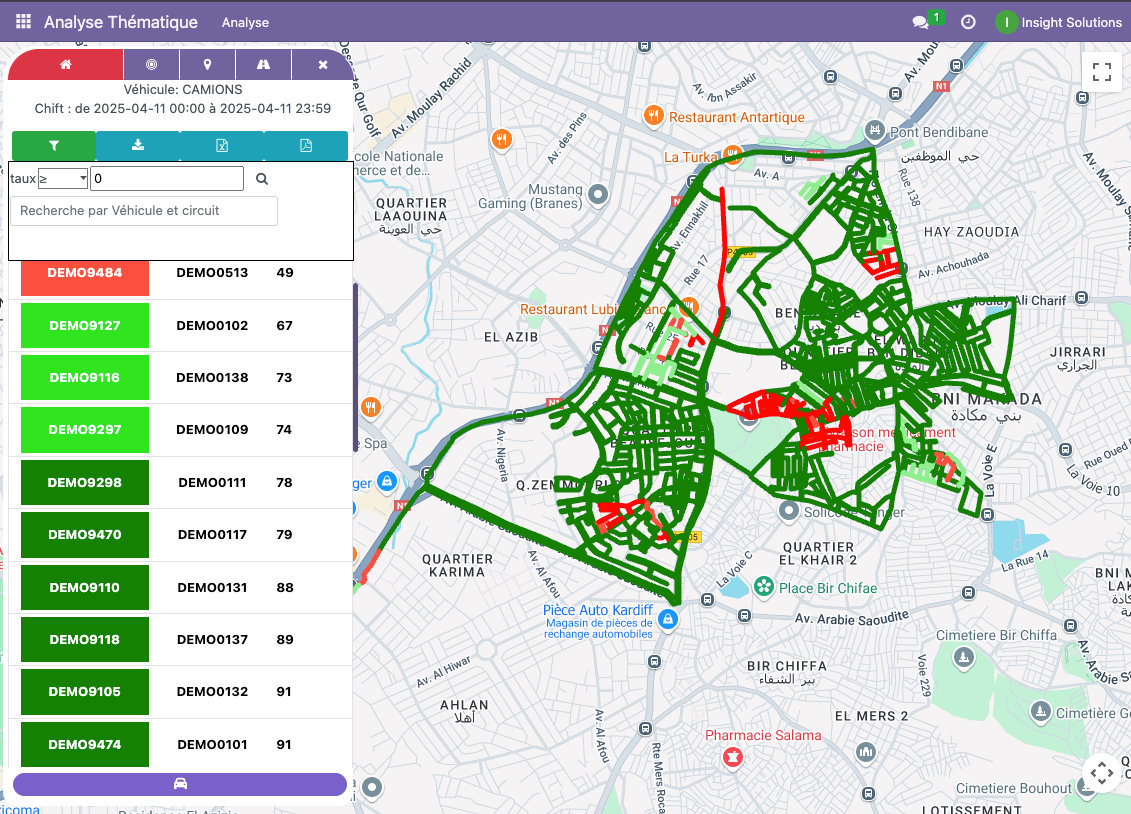
Reports:
The report dashboard module provides a unified platform for accessing key organizational data through categorized reports. It also allows for the configuration and tracking of notifications, ensuring proactive management of critical alerts. The filtering and grouping features enable users to customize their experience and optimize data analysis.
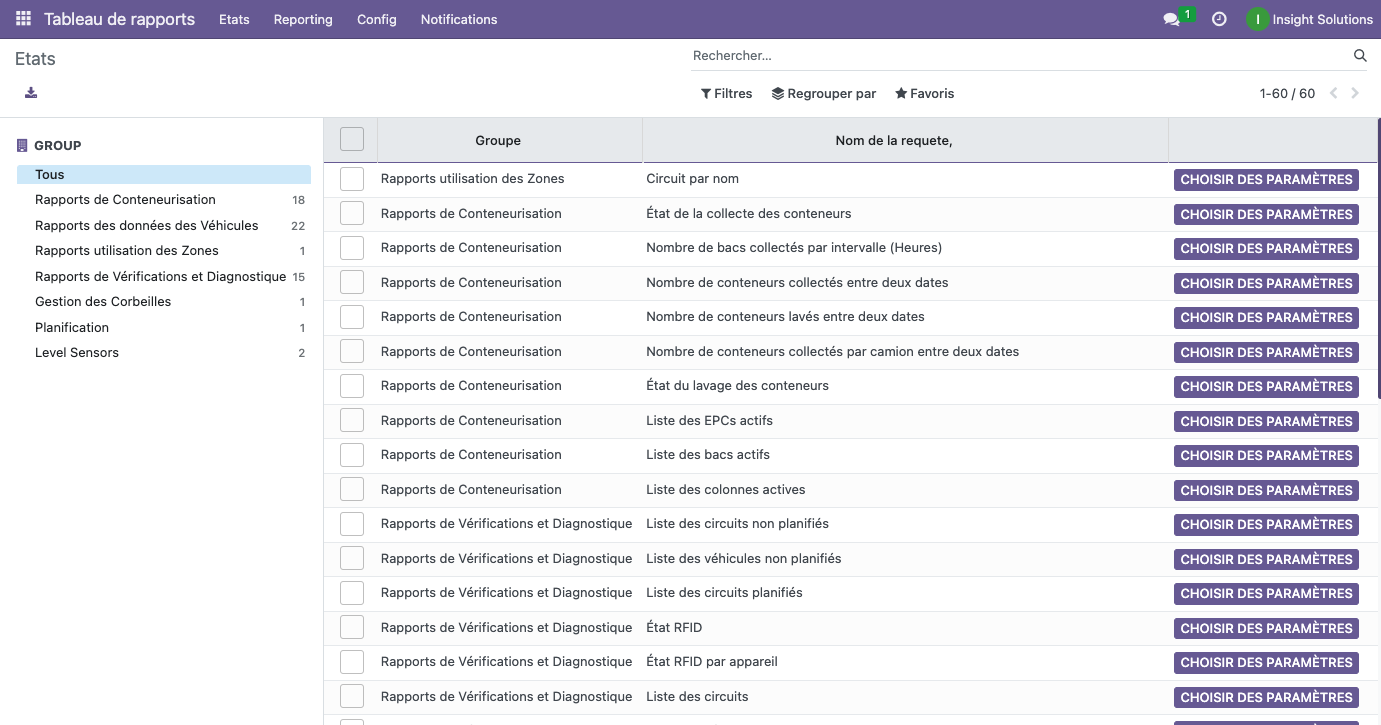
fleet:
The fleet management module is designed to assist in the efficient administration of vehicles. It offers a centralized system that allows tracking all aspects of a fleet, including vehicle information, contracts, costs, maintenance, and driver assignments. This module facilitates comprehensive fleet management by centralizing all vehicle-related data into a single interface. Users can thus monitor the status of each vehicle, schedule maintenance interventions, manage rental or service contracts, and analyze the costs associated with each vehicle. Additionally, it allows for tracking driver assignments, ensuring optimized management of human and material resources. This integrated system enhances operational efficiency, reduces management costs, and ensures complete traceability of fleet-related activities.
